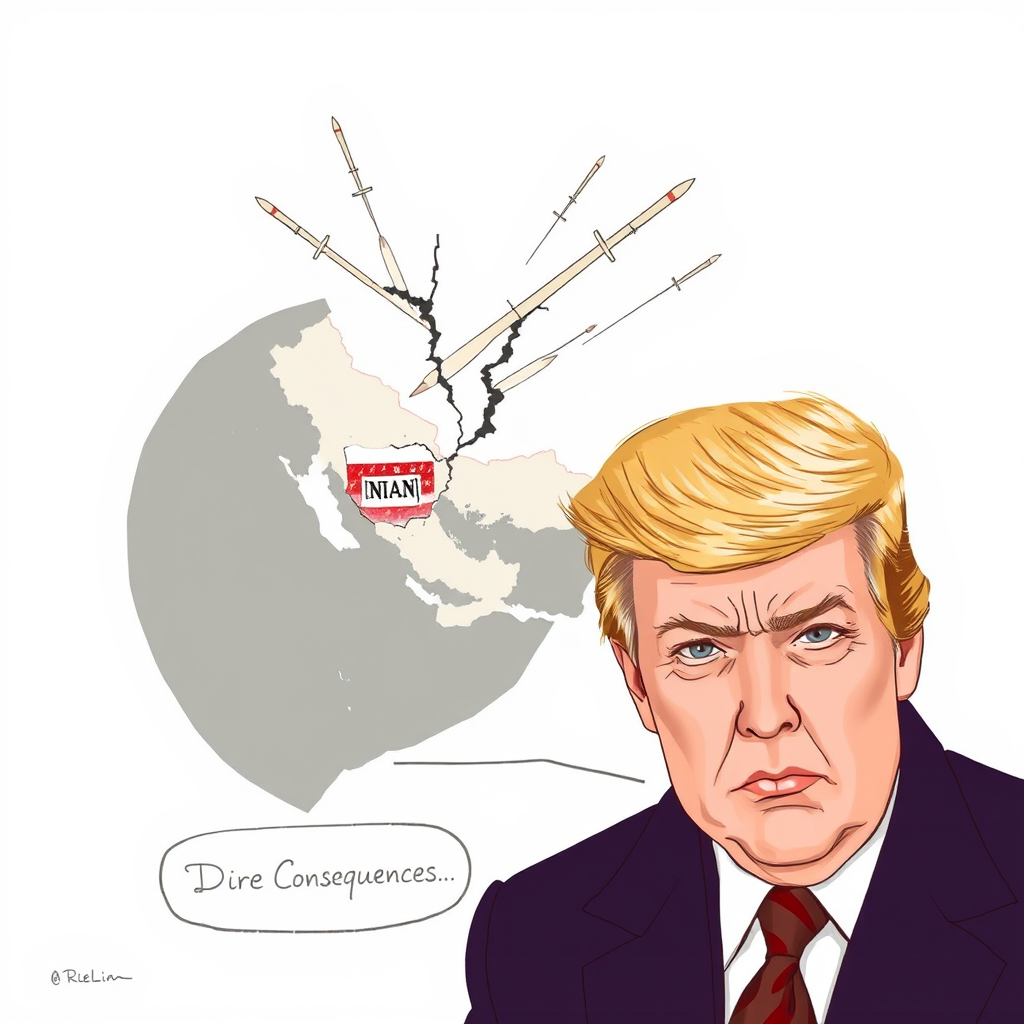Iran-Israel Conflict Escalates: Trump Warns of Dire Consequences

Escalating tensions between Israel and Iran have prompted urgent calls for de-escalation, with the United States urging Iran to engage in immediate talks. President Donald Trump warned that continued conflict could have “dire consequences,” stating Iran “is not winning this war” and should seek a diplomatic resolution before it’s “too late.” These statements came amidst a surge in hostilities, including Iranian missile strikes on Israeli cities resulting in at least eight deaths, and a regional death toll exceeding 24 in Israel and 224 in Iran.
Israel asserts it has achieved “full aerial control” over Tehran, claiming to have destroyed roughly one-third of Iran’s surface-to-surface missile launchers. In response, Iranian state media has warned of a “largest and most intense missile attack in history” on Israeli soil, and accused Israel of a “war crime” following a strike on a hospital in Kermanshah. Despite the aggressive rhetoric, reports suggest Tehran is signaling a willingness to end hostilities and resume nuclear negotiations through Arab intermediaries. This has already had a financial impact, with oil prices falling more than $2 per barrel.
The conflict has seen direct attacks on media infrastructure, with Israel striking the offices of Iranian state TV IRNA, interrupting broadcasts. Israel’s Defense Minister confirmed the attack, stating a commitment to defeat “the Iranian dictator everywhere.”
Adding another layer of complexity, U.S. media reports indicate President Trump recently rejected a proposal from Israel to assassinate Iranian Supreme Leader Ayatollah Ali Khamenei. While both Netanyahu and Trump have downplayed the specifics, the revelation highlights the potential for further escalation. Opposition figures, like Yair Lapid, are even calling for direct U.S. military involvement targeting Iran’s nuclear infrastructure.
International reaction is growing. Russian President Vladimir Putin and Turkish President Recep Tayyip Erdogan have condemned Israeli actions, expressing serious concern about the escalating conflict and its potential long-term consequences.
The International Atomic Energy Agency (IAEA) has also raised alarms, warning of potential radiological and chemical contamination at Iran’s main nuclear enrichment facility in Natanz following Israeli airstrikes. While radiation levels outside the site remain normal, the IAEA lacks critical technical information to fully assess the damage, particularly to underground areas. The agency stresses the need for timely access to information to ensure the safety of the population and the environment.
This situation is deeply concerning. While Israel has legitimate security concerns, the current trajectory risks a wider regional conflict with devastating consequences. The U.S. role is crucial, and President Trump’s call for dialogue is a necessary first step. However, simply urging talks isn’t enough. A proactive diplomatic effort, potentially involving regional and international mediators, is needed to address the underlying tensions and prevent further escalation. The rejection of the assassination proposal was a prudent move, and continued restraint from all parties is paramount. The IAEA’s concerns regarding the Natanz facility underscore the potential for a catastrophic incident, and ensuring the safety and security of nuclear materials must be a top priority. A return to the nuclear agreement, or a viable alternative, remains the most effective way to mitigate the risks and promote long-term stability in the region.